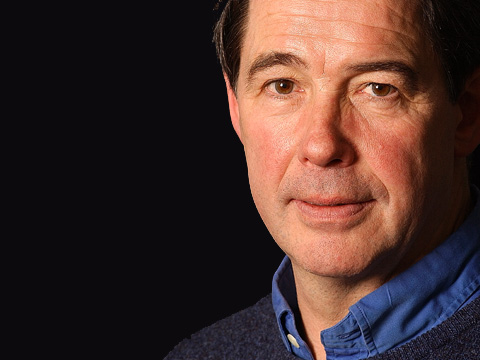Environmentalists Continue to Ignore Overpopulation
Published on April 21st, 2014
Why are environmental groups so afraid to talk about the direct link between rising population and environmental problems? And not just American environmentalists, but those in the United Kingdom and elsewhere as well?
 This was a question posed by Jonathon Porritt in a recent article in The Guardian, a left-leaning newspaper in the UK. Mr. Porritt is a former director of Friends of the Earth, as well as chair of the UK’s Sustainable Development Commission. His most recent book is The World We Made.
This was a question posed by Jonathon Porritt in a recent article in The Guardian, a left-leaning newspaper in the UK. Mr. Porritt is a former director of Friends of the Earth, as well as chair of the UK’s Sustainable Development Commission. His most recent book is The World We Made.
It’s a question many of us old-timers here in the USA have also asked. And it’s especially vexing because at one time – indeed at the very advent of the modern environmental movement in the late 60s, culminating in the first Earth Day celebration in 1970, which marked a new decade and a new era – things were very different. Back then, population was at the epicenter of our understanding of humanity’s ecological predicament, and population stabilization was acknowledged as a vital solution.
As the legendary executive director of the Sierra Club, David Brower, said in 1966: “We feel you don’t have a conservation policy unless you have a population policy.”
In those brave beginnings, iconoclastic young environmentalists in the Baby Boom and their mentors in the Greatest Generation suddenly saw a wounded world – Mother Earth – with fresh new eyes. And they understood that the population boom unleashed after World War II had to be a transient phenomenon. Either we humans would end it rationally and proactively by lowering the birth rate and restricting immigration, or nature would end it brutally by raising the death rate. Not a hard choice, seemingly.
In the decades since, the rebellious and rambunctious, anti-establishment environmental movement mellowed and merged with the establishment to become what Roy Beck and I once called the Environmental Establishment. Not coincidentally, population disappeared from its agenda.
The world’s population has grown by more than 3 billion and the American population by more than 100 million since that first Earth Day. The population problem has not gone away, in spite of widespread progress in reducing birth rates. What has gone away is our willingness to address the population issue forthrightly.
A hint as to why is given by Porritt, who begins his Guardian article with the following conundrum:
It doesn’t take too long to open up incredibly divisive discussions about population, development and the environment. For instance, how would you respond to the following facts?
25 years ago, at the time of the ‘Feed the World’ campaign, the population of Ethiopia was around 33 million. Today, it’s nearly 80 million, partly as a consequence of Western aid successfully preventing the death of millions of people who would otherwise not have survived periods of chronic drought. By 2050, on a ‘business as usual’ projection, Ethiopia’s population will be around 175 million, many of whom will be as vulnerable to serious drought as they were when we were all being exhorted ‘to feed the world.’
Porritt mentions that the same reticence is evident when it comes to openly naming and blaming population growth as a culprit in the accelerating assault on biodiversity around the world: “… conservation and environment groups tip toe around this incontrovertible physical reality as if it was a still unproven hypothesis.”
As an environmental scientist and wildlife biologist, I couldn’t agree more with Porritt. I was also dismayed to see the number of hostile comments posted below his article.
While I believe most environmentalists do recognize overpopulation as a serious problem, most too are silenced by a cadre of ideologues, hardcore lefties and certain “social justice” activists, who believe that any discussion of overpopulation is tantamount to “blaming the victim.”
These spiteful ideologues are ever ready to hurl the “r-word” (racist) at anyone who doesn’t toe their party line. No one likes being labeled a racist or accused of “hate speech,” and most will avoid it at all costs. Indeed, in this age of the Internet and search engines, there are very real costs to being accused as such, however unfounded or absurd the accusation.
Until conservationists, environmentalists and their leaders grow some huevos, they will continue to duck population, and the sheer growth in human numbers will continue to undermine all their efforts.




